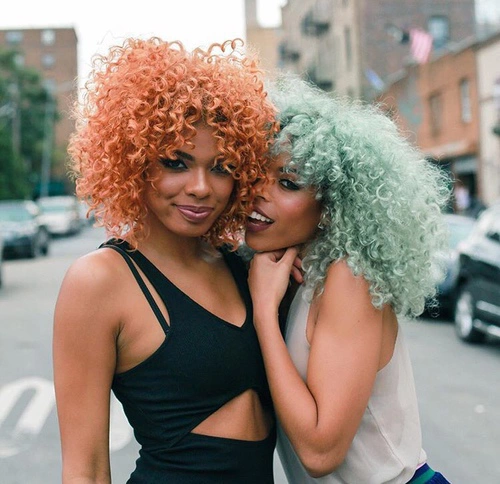There are no products in your shopping cart.
| 0 Items | £0.00 |

 BLACK women who use permanent hair dye face an increased risk of getting breast cancer by as much as 45% according to the findings of a study recently published in the International Journal of Cancer.
BLACK women who use permanent hair dye face an increased risk of getting breast cancer by as much as 45% according to the findings of a study recently published in the International Journal of Cancer.
Hair dyeing is a new vogue among black women, especially those of Nigerian extraction, with many opting for a range of flambouyant colours, ranging from red to orange. However, according to research into the trend, it has long term dangers as permanent hair dye increases a black woman’s risk of breast cancer by 45% and the more they are used, the greater the risk, as products are believed to contain dangerous chemicals.
American stylist Priscilla Graves ,of the Aicha’s African braiding salon in Harlem said: "There should be clear warnings on the labels, we need more information. I try to find out online what’s in the products but the government should be doing more to keep us safe and keep dangerous chemicals out of cosmetics.”
Priscilla, a hairstylist with 15 years’ experience straightening and colouring black women’s hair, said she has endured bouts of dizziness, nausea and difficulty breathing from applying potent chemical straighteners to her hair. She added that she regularly deals with distraught clients suffering alopecia and painful blisters after using dyes and lotions specifically marketed to African-Americans.
A new landmark study that tracked almost 47,000 American women over eight years has found that using permanent hair dye increases a black woman’s risk of breast cancer by 45%, compared to an increased risk of 7% in white women. Apparently, the more frequently women coloured their hair, the greater the risk, rising to 60% for black women who used permanent dyes at least every five to eight weeks.
Prior studies on the link between hair dye use and cancer had been inconsistent. It’s not certain why but several studies suggest that cosmetic products specifically designed for use by black women and children contain more chemicals that disrupt the endocrine or hormonal system than products aimed at white women.
Disrupting the endocrine system, which regulates reproduction, metabolism, sleep, tissue function and growth and development, can cause cancerous tumours, birth defects, reproductive problems, developmental and neurological disorders. It is also believed that the way dye is applied and differences in hair texture and absorption could also play a role.
Hair products sold in the US contain more than 5,000 chemicals, including aromatic amines in dyes that can cause DNA mutations, parabens in hair lotions that are linked to reproductive and hormonal problems and known carcinogens such as formaldehyde, which are used in embalming fluids and some popular hair smoothing or straightening products. In the European Union, at least 1,300 chemicals are banned or restricted in cosmetics such as shampoos, soaps, dyes and nail polish, while the US has outlawed or curbed only 11.
This latest study, published in the International Journal of Cancer, is the first to analyse the link between chemical hair straighteners and breast cancer since the introduction of so-called Brazilian keratin treatments, which contain up to 11.5% formaldehyde, to the global market in the 2000s. Researchers found that regardless of race, using hair straighteners at least every five to eight weeks increased the risk of breast cancer by 31%.
In the survey, about 74% of black women reported using chemical straighteners compared with only 3% of white women. Breast cancer is an unequal disease, as almost one in three African American women diagnosed with breast cancer dies, representing a 40% higher mortality rate than white women, according to the Centers for Disease Control.